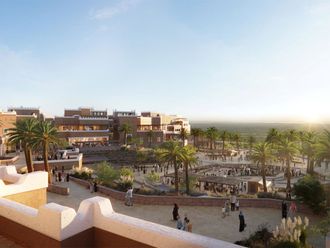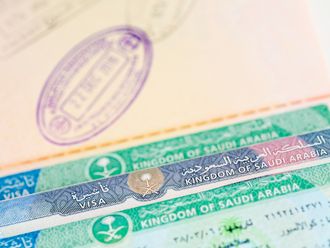Dubai: Egypt is diversifying from its traditional tourism markets, wooing Brics countries and Japan instead as it tries to meet its target of $25 billion (Dh91.8 billion) in tourism revenue by 2017, the Egyptian minister of tourism said yesterday.
Egypt is seeking to reduce airport fees, aggressively promote itself through a private sector fund and launch new products such as eco-tourism in Sharm Al Shaikh to bring the number of tourists this year to the pre-uprising levels of 14.7 million, Egyptian tourism minister Mounir Fakhry Abdul Noor said on the sidelines of the Arabian Hotel Investment Conference yesterday.
"We're diversifying our markets. Traditional markets are close to saturation and we're getting off the beaten path. We're knocking on the doors of the Brics, Japan is coming back. We're opening a new airline link between Cairo and Tokyo and the second between Cairo and Osaka," he said.
Length of stay increases
There are already signs of improvement, with tourist arrivals rising 32 per cent in the first quarter of 2012, he said yesterday. The average length of tourists' stay in Egypt increased to 11.6 days in the same period and there is an increased influx of tourists from Russia, Poland and Ukraine, he added.
Analysts believe that among the countries which witnessed the Arab Spring, Egypt is most likely to see a recovery in its tourism industry.
"I would bet on Egypt recovering the fastest," Gavind Samson, managing director of hospitality consultants Christie & Co Mena, told Gulf News.
Asked if Egypt can achieve its expectations of visitor numbers rebounding to pre-uprising levels this year, he said this may come at the cost of cheaper hotel room rates that would be difficult to recover later.
With European tourists flying in by charter planes to resorts on the Red Sea, far from the protests in Tahrir Square and a diverse product offering, Egypt stands to recover quickly, he said.
In 2010, 14.7 million people visited Egypt, bringing in an income of $12.5 billion, Abdul Noor said. Tourism slumped in 2011 following the popular revolt that ousted President Hosni Mubarak. In 2011 the number of tourists dropped by 33 per cent to 9.8 million and income decreased to $8.8 billion, he said.
A private sector fund by the tourism industry is funding promotional and advertising activity, he said.
Asked whether the rise of conservative parties to power in Egypt can harm the tourism industry, he said: "I honestly don't think that in a democratic environment, a public official that is accountable, that is responsible, that will be questioned by the public opinion, by parliament, by the press, can take decisions that can jeopardise such an important sector."
Offering incentives
The Egyptian pound could devalue by five to 10 per cent but this would still have a positive impact on the Egyptian tourism industry, according to Egyptian tourism minister Mounir Fakhry Abdul Noor.
Although Egypt has a significant budget deficit, it still has limited foreign indebtedness and strong credit worthiness that boosts its ability to borrow, he said yesterday at the Arabian Hotel Investment Conference.
To boost its tourism industry, which suffered a setback after the revolution in 2011, Egypt is incentivising low-cost carriers, seeking to reduce airport fees in Aswan and attracting chartered operations, which reached 120 planes a day on weekends in the Red Sea, he added.
Egypt is 17 per cent below its 2010 figures in terms of tourist arrivals, he said. Tourism contributes 11.3 per cent of the country's GDP and employs one in six Egyptians.












